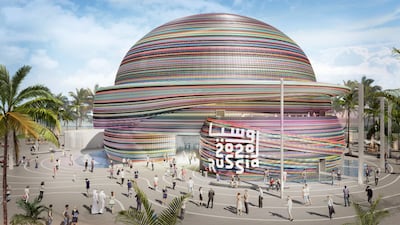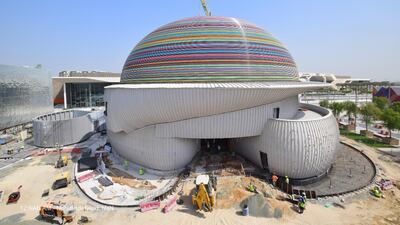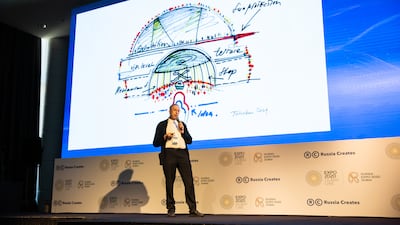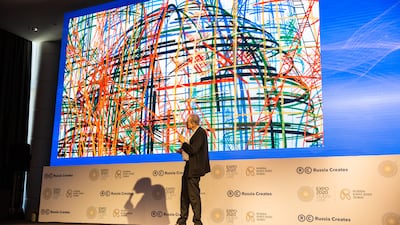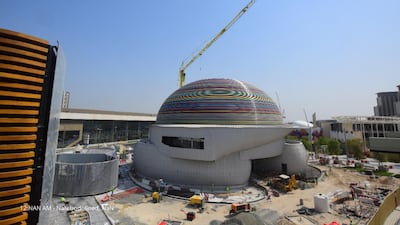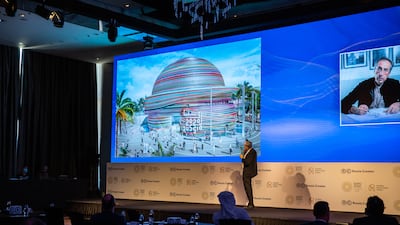Saudi Arabia unveiled its bold plans for Expo 2030 as five nations made their pitches to host the global event.
Riyadh hopes to build on the success of Expo 2020 Dubai and bring the world's fair back to the Middle East in a decade's time.
Slick pitches for the international extravaganza were made by the kingdom and fellow competitors Russia, South Korea, Italy and Ukraine to Expo chiefs.
Each country was given about 20 minutes during an online general assembly on Tuesday of the Bureau International des Expositions, the organisation that leads the world’s fair.
chief executive of the Royal Commission for Riyadh
National leaders highlighted ambitious visions and the rich history of cities they represented from the Italian capital Rome, Russia’s largest city Moscow and the Saudi capital Riyadh to Ukraine’s port city Odessa and South Korea’s coastal city Busan.
South Korean President Moon Jae-in said his country was committed to working to transform the lives of all people by sharing the story of how it moved from a developing nation to an industrialised one.
“We will help developing countries with their green and digital transition,” he said in his video address to the BIE.
“In 2030 the world will see a sustainable future unfold in Busan with a view to achieving digital, green transition and carbon neutrality.”
Russia’s Prime Minister Mikhail Mishustin said a recent visit to Expo 2020 Dubai strengthened his country's resolve to succeed.
“Russia is devoted to the international exhibition movement. We sincerely believe it is time for the largest exhibition in the world to come to the Russian federation,” he said standing against the backdrop of the colourful Russian pavilion in Dubai.
“The theme we have suggested is ‘Progress of humanity: A shared vision for a world of harmony’. This is about a vision of fairness and human prosperity.
“In a time when the world is making a transition to a green economy, this represents a great challenge for all.”
Saudi Arabia sets out plan to welcome the world
Saudi Arabia laid out plans to transform Riyadh and the rest of the nation.
Fahd bin Saleh Al Rasheed, chief executive of the Royal Commission for Riyadh City, spoke of building one of the world’s largest public transport networks, a massive King Salman Park that will be four times the size of New York’s Central Park, planting 15 million trees and turning the city’s streets into art projects.
He said the initiatives would not be at the expense of the environment, as the goal was to cut carbon emissions by half in less than a decade.
“The transformation is not occurring only in Riyadh, it is sweeping the country,” he said.
“Riyadh will be more than ready to host the World Expo.
“It will be a perfect manifestation of what the World Expo aims to achieve to bring together the world’s best minds, ideas and solutions.”
Mr Al Rasheed described Saudi as a nation on the move.
“As a first time competitor, Saudi Arabia’s candidature represents an important and symbolic challenge for our nation and one that we will embrace with full commitment,” he said.
Historic Rome looks to future
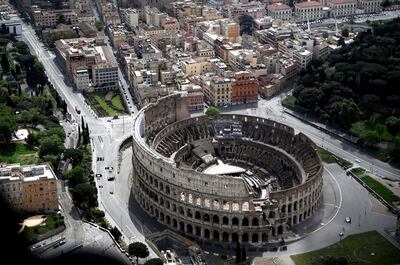
Giampiero Massolo, chairman of Rome’s candidature committee, said people should be the focus of local developers as organisers aimed to creatively redesign city spaces.
“Together with you, we want to come up with neighbourhoods based on the concept of proximity, that are interconnected and sustainable from an environmental and economic stand point,” he said.
“After the extraordinary experiences of Milan and Dubai, our proposal is cloaked in thousands of years of Rome’s history but also has faith in scientific discoveries.”
Technology and harmony were at the heart of the speech of Yulia Svyrydenko, Ukraine’s first deputy prime minister.
She spoke of using the power of science to “rehumanise” people and not make them irrelevant.
“The power of technology will be clear in 2030,” she said.
“We want to see how technology will help us be more human and not replace humans.
“Technology is a new religion. The move will be to discover and explore human potential.”
Each of the five nations will update subsequent BIE general assemblies with their progress over the next year and submit a detailed dossier, after which inquiry missions will visit to assess each project.
The host country will be elected by a vote by 170 BIE member states.


















